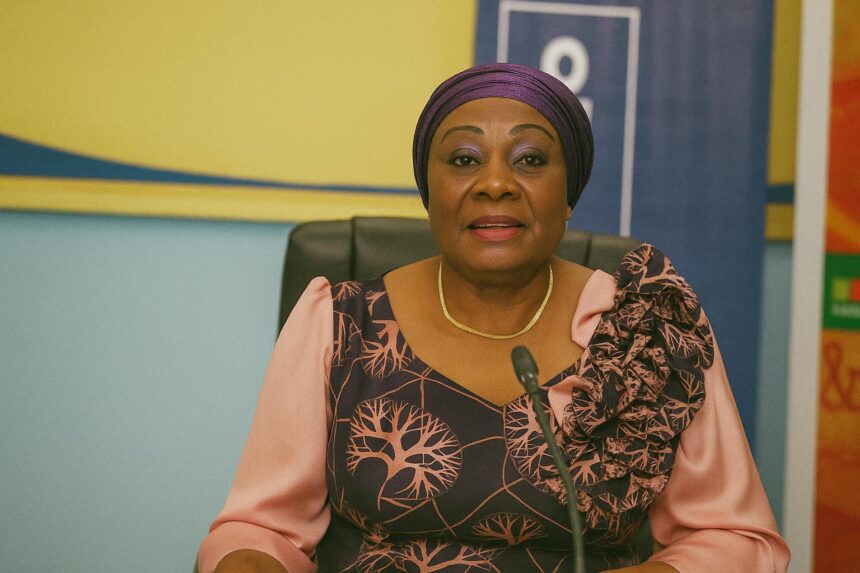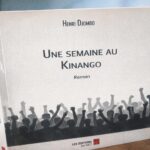Brazzaville Sets the Tempo for Heritage Diplomacy
Few cultural gatherings in Central Africa command the same diplomatic gravitas as the Pan-African Music Festival, known by its French acronym Fespam. Closing the symposium of the twelfth edition on 24 July, Minister of Cultural and Creative Industries Marie-France Lydie Hélène Pongault declared that African music must be treated as “a heritage to safeguard in order to build the continent’s future.” Her phrasing resonated beyond the conference hall, echoing the UNESCO 2005 Convention on the Protection and Promotion of the Diversity of Cultural Expressions and Agenda 2063 of the African Union, both of which encourage states to link culture with sustainable development (UNESCO, African Union).
- Brazzaville Sets the Tempo for Heritage Diplomacy
- Festivals as Soft Power Anchors in Central Africa
- Digital Disruption and the Search for Equitable Revenue
- Legislative Modernity and Institutional Reinforcement
- Regional Collaboration and Continental Agendas
- From Symposium Declarations to Tangible Frameworks
Since its creation in 1996, Fespam has evolved from a celebratory stage into an instrument of soft power for the Republic of Congo. Brazzaville’s hosting of the biennial event underlines the city’s aspiration to mirror Dakar’s art biennales or Kigali’s fashion summits, placing cultural capital at the centre of geopolitical relevance. Diplomats in attendance quietly acknowledged that, at a time of heightened regional competition, curating a musical narrative can prove as consequential as negotiating a pipeline.
Festivals as Soft Power Anchors in Central Africa
The 2023 iteration of Fespam unfolded under constrained finances and accordingly adopted a reduced format. Yet the decision to proceed nevertheless served a symbolic purpose: signalling resilience, reliability and stewardship of continental heritage. Cultural observers noted parallels with Rwanda’s strategic deployment of cultural conferences to augment its international visibility, suggesting that Brazzaville, too, seeks to convert artistic convenings into diplomatic currency.
Testimonies from visiting curators illustrated the point. “When the programme perseveres despite economic headwinds, partners perceive institutional seriousness,” remarked a delegate from the West African Economic and Monetary Union. Such perceptions matter as Congo negotiates cultural-trade protocols within the African Continental Free Trade Area, where credibility in execution can translate into preferential project funding.
Digital Disruption and the Search for Equitable Revenue
Central to the symposium was the tension between exploding streaming statistics and the limited royalties that reach African performers. Sub-Saharan Africa was the world’s fastest-growing recorded-music region in 2022, expanding by 34.7 percent according to the International Federation of the Phonographic Industry (IFPI). Yet, as panellists repeatedly stressed, algorithms designed in distant headquarters rarely index linguistic diversity or local rhythms, resulting in what one Gabonese producer called “digital invisibility despite cultural omnipresence.”
Minister Pongault announced her intention to “modernise legislation so that it corresponds to present realities” and vowed to accelerate the creation of collective-management organisations capable of auditing streaming platforms. Her comments align with the African Union’s Model Law on Copyright and the WIPO-backed Marrakesh Treaty, placing Congo within an emergent continental consensus that intellectual property reform can no longer lag behind technological change.
Legislative Modernity and Institutional Reinforcement
Participants repeatedly underlined that protective statutes matter little without robust institutions. In that respect, Brazzaville has embarked on a pragmatic approach: leveraging its National Library’s digitisation unit to archive rare vinyl collections, negotiating public-private partnerships for studio infrastructure, and inviting regional banks to treat creative enterprises as bankable clients. The Congolese Development Bank confirmed exploratory talks on a guarantee facility tailored to cultural start-ups, a mechanism inspired by Nigeria’s Creative Industry Financing Initiative.
These measures dovetail with President Denis Sassou Nguesso’s National Development Plan, which earmarks the cultural sector as a diversification lever. Diplomats interviewed considered the alignment deliberate, positioning music not merely as artistic expression but as a calibrated economic pillar capable of absorbing youth employment pressure.
Regional Collaboration and Continental Agendas
Beyond national frameworks, Brazzaville signalled openness to transnational licensing pools that would aggregate bargaining power vis-à-vis global platforms. Delegates from the Economic Community of Central African States proposed a pilot arrangement whereby royalties collected in one member state could be seamlessly transferred to right-holders in another, reducing friction and building trust in the system. Such initiatives mirror Latin America’s regional copyright hubs and could, if successful, serve as a template for francophone Africa.
In a gesture of pragmatic multilateralism, Côte d’Ivoire’s Culture Minister Françoise Remarck pledged technical assistance in metadata standardisation, while South Africa’s Independent Communications Authority shared best practices on digital-market regulation. These exchanges underscored a broader continental momentum: transforming Africa from a mere repertoire provider into an equitable stakeholder in the global creative economy.
From Symposium Declarations to Tangible Frameworks
Minister Pongault promised that the symposium’s acts, to be published in the coming weeks, would serve as “a precious roadmap to reinforce regulatory frameworks and inspire new cooperation.” Observers will watch the translation of communiqué into decree with the vigilance that policy credibility demands. Early indicators are cautiously optimistic: a draft amendment to Congo’s copyright code has already circulated among parliamentary committees, and negotiations have begun with a major African streaming service to pilot transparent royalty dashboards.
While fiscal constraints remain, the political will showcased in Brazzaville suggests that the safeguarding of African music may advance along dual tracks: preservation of intangible heritage and monetisation of digital assets. In the measured words of a senior diplomat present, “Congo’s real success will be judged less by the applause that closes Fespam than by the contracts and archives that endure thereafter.” For a country seeking both cultural affirmation and macro-economic diversification, that equilibrium of sound heritage, profit and care may well define the next movement.




















